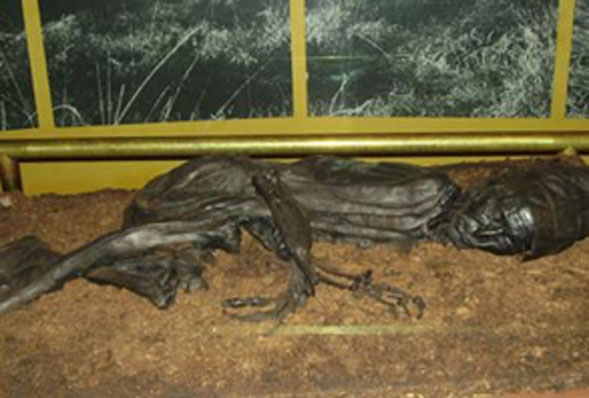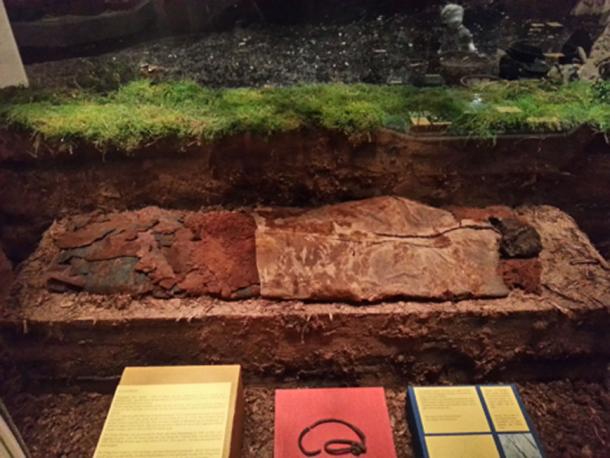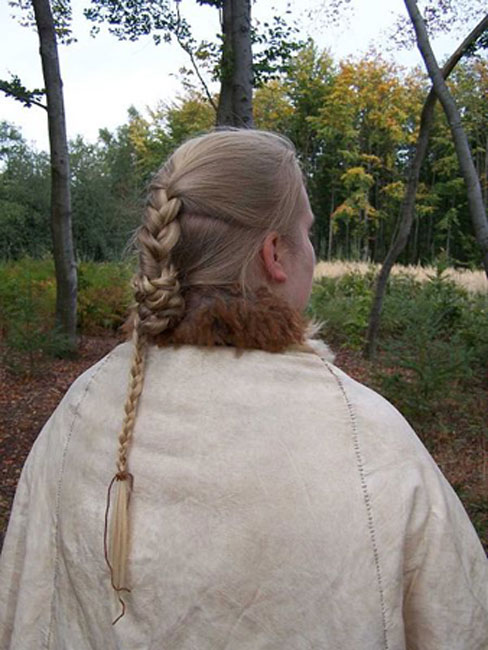The Ill-fated Elling Woman: An Iron Age Sacrifice to Appease the Gods?
Elling Woman is the name given to a well-preserved bog body that was discovered in Denmark during the first half of the 20th century. By then, this type of remains had already been found in Denmark’s bogs for at least a century.
For instance, one bog body, unearthed in 1835, was thought to have belonged to a legendary Viking queen from the 8th century AD by the name of Gundhilde. Subsequent research on bog bodies, however, have shown that this practice had existed at an earlier period of time. In the case of Elling Woman, for example, it was found that she had lived during the Iron Age of northwestern Europe.
Discovering the Elling Woman
Elling Woman was discovered in 1938, when a farmer by the name of Jens Zakariassen was in the process of digging peat. This occurred in a pit bog in Bjældskovdal, a bog area which lies to the west of the city of Silkeborg, in the central part of Denmark.

At least two other bog bodies have been found in this area, one having been discovered in 1927 (which was reburied when the peat bank collapsed over it), and another being the famous Tollund Man, which was discovered 12 years after Elling Woman was found, and separated from her by a distance of less than 100 meters (328 ft.).

Initially, the farmer thought that he had found the remains of an animal that had drowned in the bog. He only realized that these were human remains when he noticed the woolen belt around the body’s waist.
As he recognized that this may be of archaeological importance, he contacted the National Museum of Denmark. Subsequently, the body was removed from the bog, and was transported to Copenhagen to be analyzed.
Beginning to Decipher the Elling Woman’s Past
With the level of technology at that time, there was not very much that could be done to study Elling Woman. Nonetheless, it was observed that whilst the back of this bog body was well-preserved, its front was not, which made it difficult to identify whether the body belonged to a male or female.
Apart from that, the body was found to have been dressed in a skin cloak, and a blanket / cloak of cowhide was wrapped around her legs. Furthermore, the body’s hairstyle, which was a long pigtail formed by an intricate pattern of plaiting, and tied into a knot, was noted. A skin rope was also found with the body. Elling Woman was then kept in a storage room in the museum.

New Details on the Elling Woman Emerge
It was only later, during the 1970s, that more information was extracted from Elling Woman, thanks to technological advancement. For example, the sex of the body was determined using x-ray and examination by a forensic dentist.
It was also determined that Elling Woman was about 25 years old at the time of her death. Radio carbon dating also suggested that Elling Woman lived during the Iron Age of northwestern Europe, between the 4th and 2nd centuries BC.

Based on the skin rope that was found with her, it has been established that Elling Woman was hanged to death. This rope has a sliding knot, which made it suitable for hanging. In addition, Elling Woman’s neck has got a furrow left from the hanging, further supporting this point of view.
Whilst some scholars have suggested that bog bodies belonged to executed criminals, others are more inclined to regard them as evidence of human sacrifice. In the case of Elling Woman, it is possible that she was living in an age when the climate was experiencing unusual changes.
This would have had a negative impact on the community she was living in, and they may have decided to offer her as a sacrifice to the gods in the hopes of appeasing them.
In more recent times, women around the world have taken an interest in the mystery of the Elling Woman and also found inspiration in her Iron Age hairstyle. Videos and tutorials on how to recreate her ancient hairstyle can be found across the internet.

